[ESG Feature] At the Forefront of Climate Change Policies of Korea
- Views 1373
- Writer 커뮤니케이션팀
- 보도일자 2023-07-31
The climate crisis has become a reality. Extreme weather events around the world have shown that climate change is an existential threat against humanity. To tackle this global crisis, the international community adopted the Paris Agreement in 2016 to reduce greenhouse gas (GHG) emissions and is making efforts to cut carbon emissions step by step. South Korea is also gearing up to reduce GHG emissions and promote green growth by announcing the 1st National Carbon Neutrality and Green Growth Framework Plan (2023-2042) in March 2023.
In line with such international trend, Sookmyung Women’s University has been leading education and research on climate change and the environment since establishing the Department of Convergence of Climate and Environmental Studies within the Graduate School of TESOL and International Studies (specialized graduate school) in 2016. Since 2019, the Department of Climate, Environment and Energy was added to the Graduate School, with faculty members from the Department of Chemistry, School of Chemical and Biomedical Engineering, Department of Public Administration, and School of Global Service in an attempt to nurture doctoral talents.
As part of the ESG initiative, the Communication Team interviewed Professor Ahn Young-hwan, the dean of the Department of Climate, Environment and Energy and the head professor of undergraduate global environmental studies, and Won Yoo-jun, a researcher at the Climate and Environment Integrated Modeling Laboratory, who are engaged in research on climate change response and green growth.
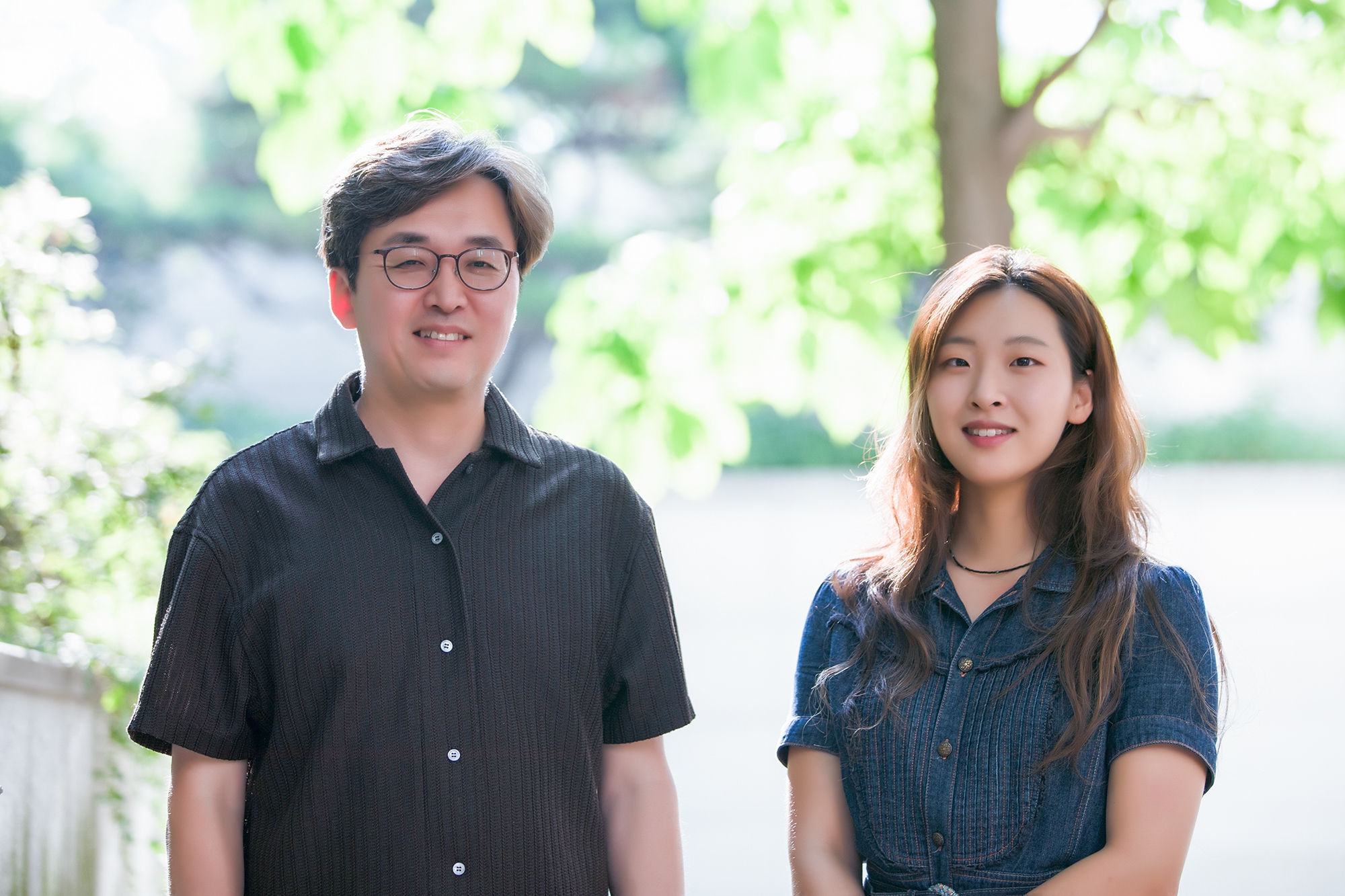
○Could you give us an introduction to the Department of Convergence of Climate and Environmental Studies?
-Professor Ahn Young-hwan: Established in 2016, the Department of Convergence of Climate and Environmental Studies cultivates experts in the field of ESG through training in theoretical and empirical analysis of environmental issues centered on climate change, international cooperation in the field, and the development and utilization of eco-friendly technologies. The master's program in the two majors of Climate and Environmental Studies and Environmental Economics offers courses such as establishing an efficient carbon neutrality policy, motivating corporations to reduce their carbon footprint by improving emissions trading system, and creating a corporate ESG implementation strategy by fine-tuning the current ESG management. In 2019, the Department of Climate, Environment and Energy was also established in the Graduate School. The two graduate schools have a unique feature of sharing classes with each other.
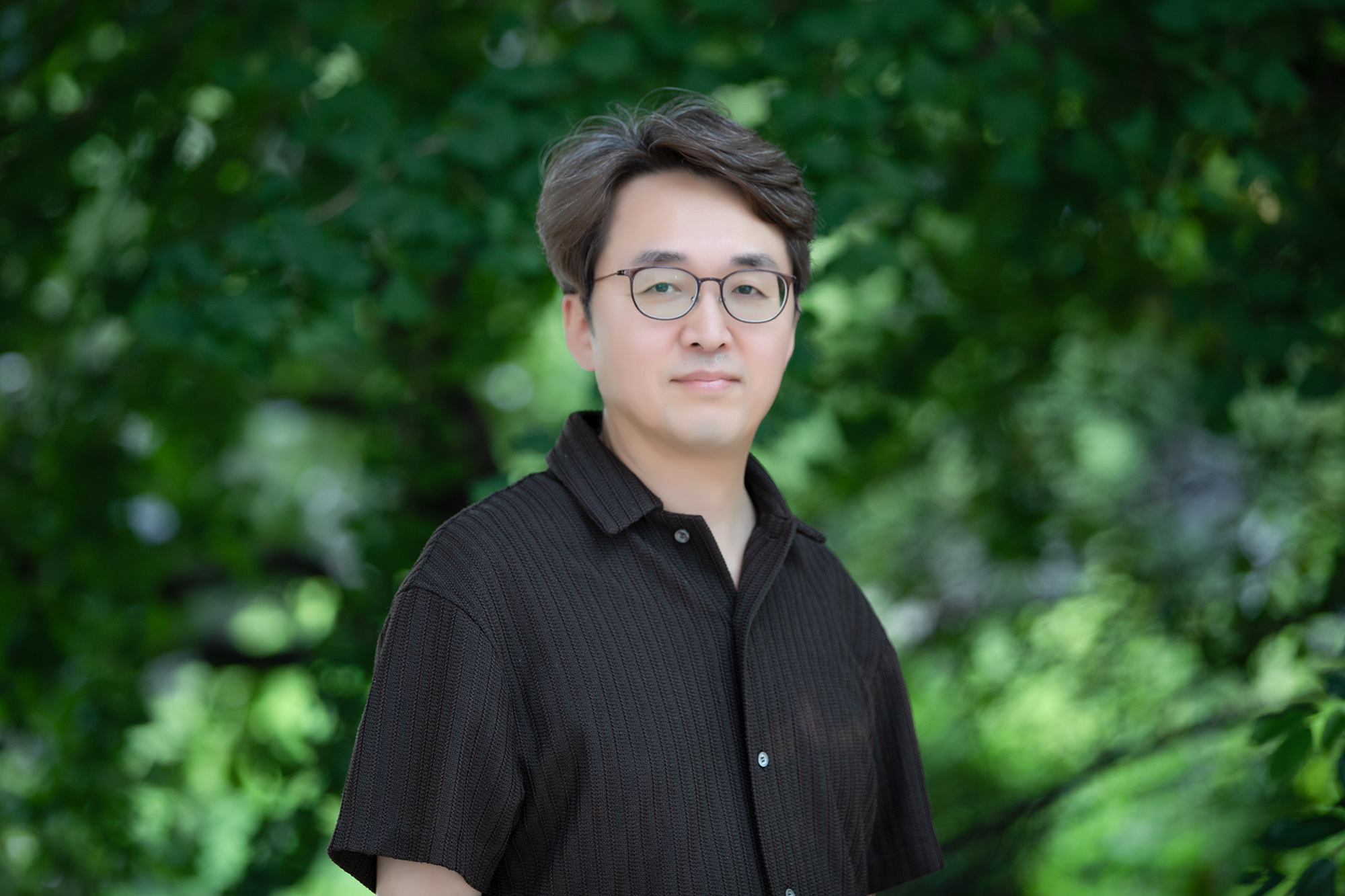
○What kind of students study in the Department of Convergence of Climate and Environmental Studies?
-Professor Ahn Young-hwan: About 60 students are studying in the master’s program in the Department of Convergence of Climate and Environmental Studies and the master's and doctoral programs in the Department of Climate, Environment and Energy; about two-thirds have full-time jobs. Many of them work in research institutes and energy-related companies. Especially, this year, a lot of students working for the private sector interested in ESG enrolled. As new organizations related to ESG are emerging in the private sector, I think many people feel the need to study ESG systematically.
-Researcher Won Yoo-jun: I believe it's a great opportunity for students who are interested in this field because after graduation, they can work as energy, climate change, and environmental experts at international organizations such as the UNFCCC Secretariat, the Green Climate Fund (GCF), the Korea Adaptation Center for Climate Change(KACCC), and government-funded research institutes, as well as public and private energy companies. They can also work at the IIASA (an international research institute focused on modeling), financial institutions (related to ETS pricing models, ESG responses, etc.), law firms, or as professors of environment-related majors, although there are precedents yet.
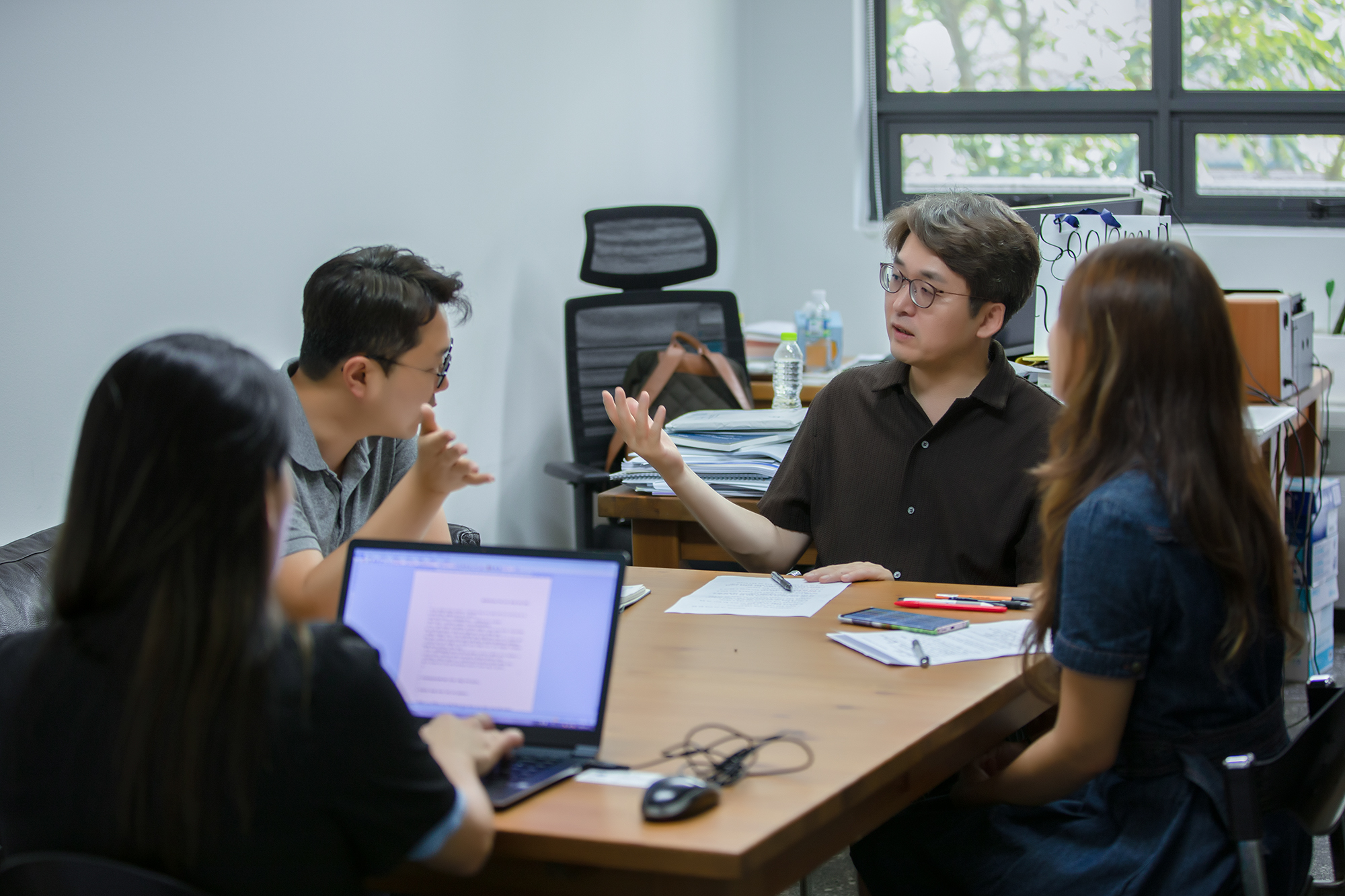
○Please tell us about the specialties of your department.
-Professor Ahn Young-hwan: Although Seoul National University and Korea University also have graduate schools of environment, few have curricula focused on climate change, carbon neutrality, and ESG like ours. In particular, we proud ourselves in being the only department that has conducted data research on GHG emissions and developed our own analysis model for GHG reduction. In 2017, we were designated as a graduate school specializing in knowledge-based environmental services, so there are many scholarships available, and full-time students will find many opportunities to participate in projects to establish actual government policies.
-Researcher Won Yoo-jun: I think our department is at the forefront of climate change policy in South Korea. Since 2018, we have attended the United Nation Framework Convention on Climate Change Conference of Parties as a delegation. Our department is contributing to establishing national environmental policies based on international trends discussed in the conferences.
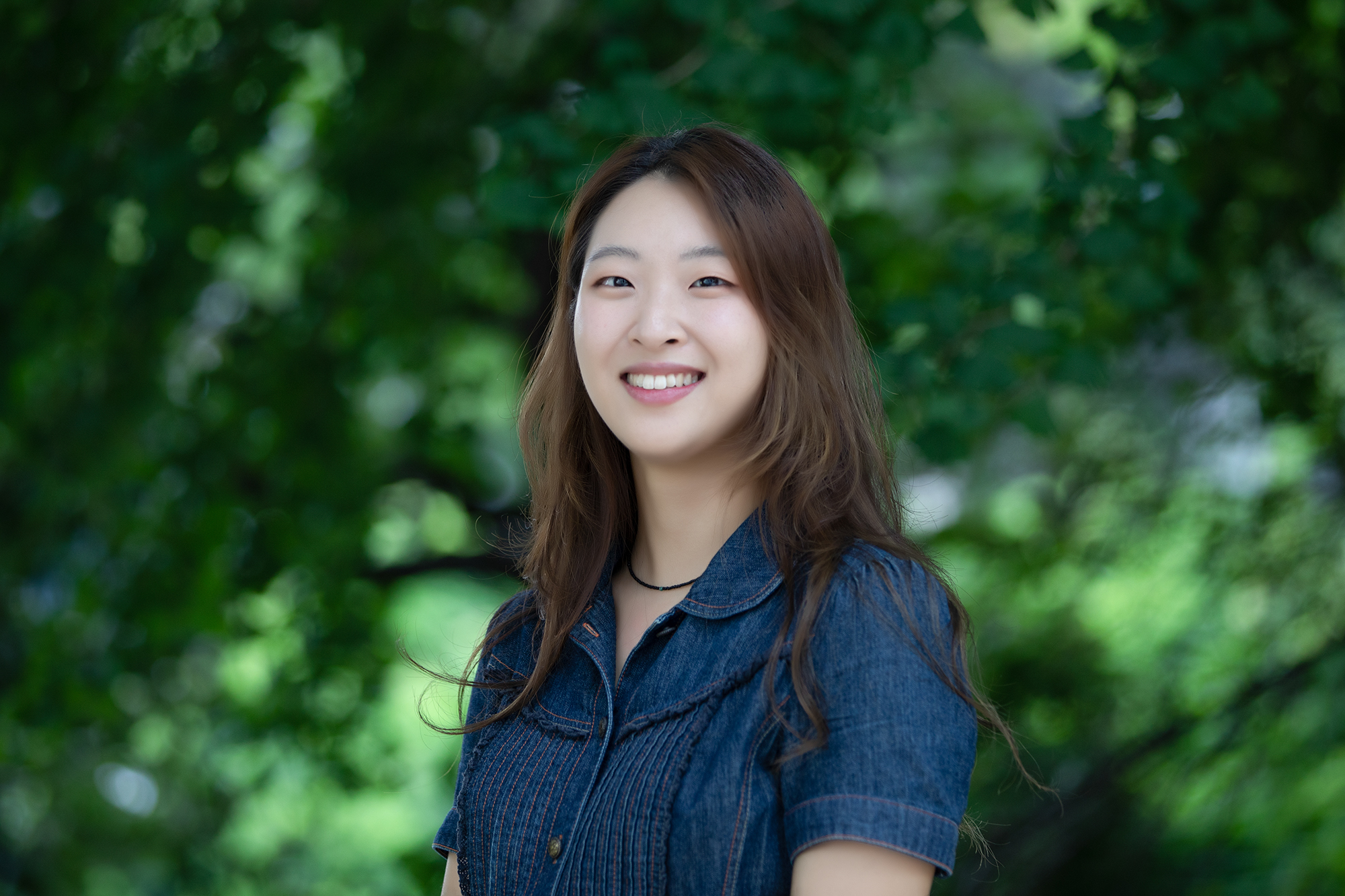
○The world is suffering from climate change and its aftermath. Are there any issues that you are particularly paying attention to as an expert in the field?
-Professor Ahn Young-hwan: The issue of climate change is no longer just about environmental protection but is changing the international economic order. Non-tariff barriers such as the RE100 initiative and carbon border taxes are increasing. In addition, even investors and buyers are requiring businesses to reduce carbon emissions. In this light, we need to focus on how to deal with such issues. In the future, we need to come up with a concrete system for carbon pricing (CP), charging costs for carbon emissions at a national level, and build a way for the public to actively participate in it. We also need to consider supporting vulnerable industries and people during the transition process.
-Researcher Won Yoo-jun: The role of the private sector in environmental issues has been gradually increasing recently. While governments are setting targets to reduce GHG emissions, the private sector’s role is essential for the actual implementation of these targets. Accordingly, the role of consumers, who can greatly influence the decision-making of private companies, has become more important than ever, and we need to think about the role of conscious consumers.
○What contributions can students and members of Sookmyung Women’s University make in their daily lives?
-Professor Ahn Young-hwan: I would like you to be interested in the economic system related to the environmental issues that I mentioned earlier. Additionally, I would like you to think about the increasing cost of environmental protection and your role as evaluators of environmental policies. Thinking about carbon neutrality on the policy front will help you broaden your insight as well.
-Researcher Won Yoo-jun: Since I was an undergraduate, I've seen buildings with lights on or air conditioners running even when there are no students in the building. I believe students being interested in these aspects and actively suggesting ideas to the school to save energy can be a great help. I also believe that the school should try to change these systems to be more energy-efficient.
○Professor, what inspired you to become an expert in the environmental field?
-Professor Ahn Young-hwan: I majored in Business Policy as an undergraduate and realized that my interest was in promoting social welfare rather than maximizing profits. When I went on to my master's degree, I studied environmental economics and policy and steadily pursued a career in this field. Until then, I had no idea that the society’s interest in environmental issues would grow as much as it is now. I guess I was lucky.
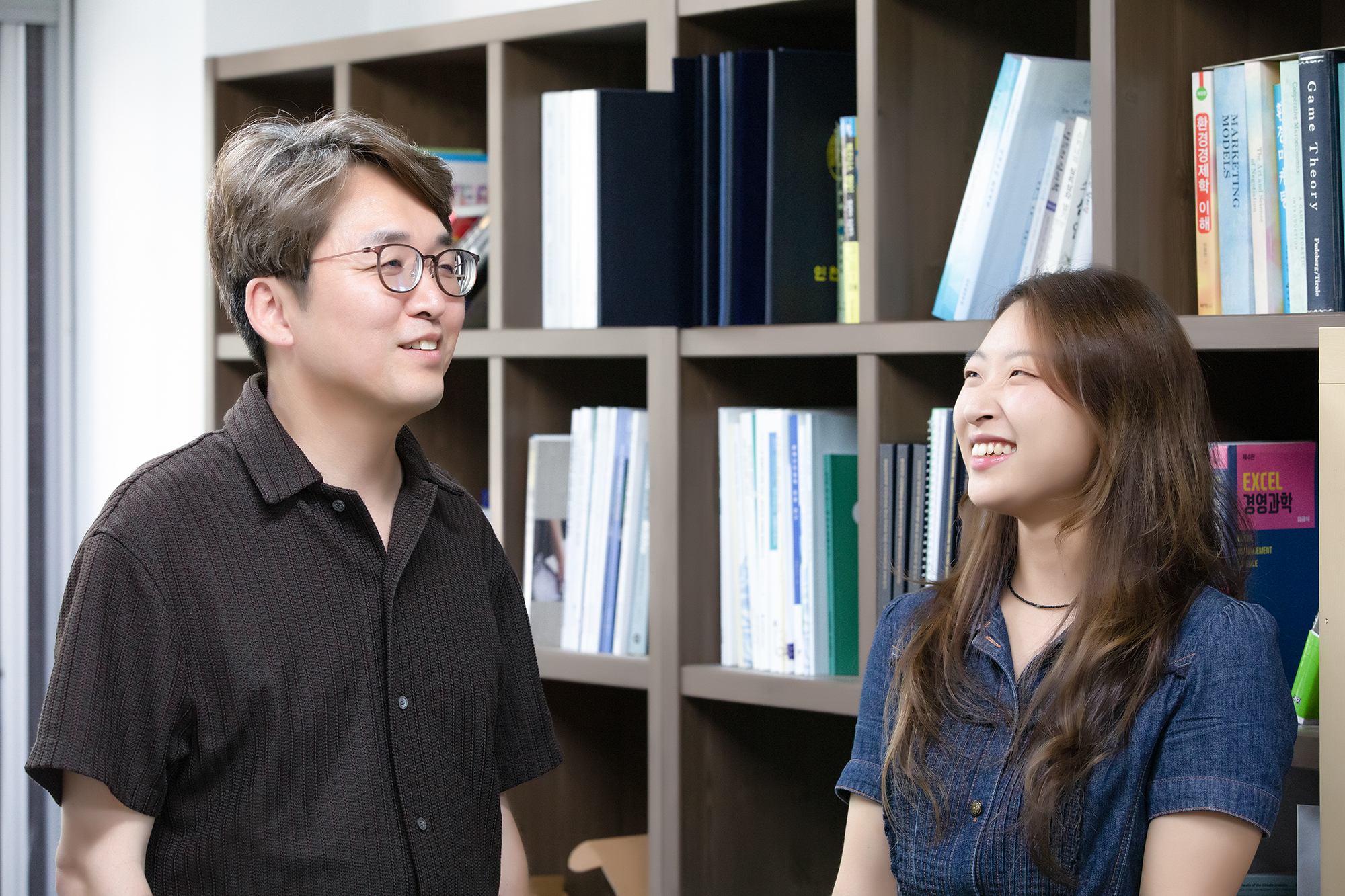
○You seem to have been interested in climate and environmental issues since you were an undergraduate. What made you decide to go to graduate school?
-Researcher Won Yoo-jun: I minored in Global Cooperation as an undergraduate and took a class by Professor Yoo Seung-jick. At that time, there was an oil spill in Taean, and I naturally became interested in the environmental field as I was interviewing residents of Taean and analyzing it to understand the spill's social, economic, and environmental impacts. I always wanted to do something for the society, and I thought that Environmental Economics was what I was pursuing. Naturally, I went to the Department of Convergence of Climate and Environmental Studies. I had no difficulty choosing which school I want to study because I knew the best professors in Korea were here.
○What research do you plan to carry out in the future? What are your goals?
-Professor Ahn Young-hwan: My goal is to develop further our GHG reduction analysis model, which is the only one of its kind in Korea, and make our research team into one of the world-renowned research institutes.
-Researcher Won Yoo-jun: I’m going to continue my research on the international trend related to climate change negotiations. I’m studying energy system modeling under my professor, and I hope to work harder in this field and become a proud member of Sookmyung, who contributes to setting climate policy in Korea.
Dr. Ahn received his Ph.D. in Business Engineering from KAIST and joined Sookmyung Women's University in 2019 after working at the Korea Energy Economics Institute, the Greenhouse Gas Inventory and Research Center, and the IIASA. He is an expert in the field of GHG reduction model development and energy policy and has been serving as the head of the GHG reduction part of the Presidential Commission on Carbon Neutrality and Green Growth since last year. In June, he was awarded the Red Stripes Medal of Order of Service Merit on the occasion of Environment Day.
Researcher Won Yoo-jun graduated from the School of Economics at Sookmyung Women’s University with a master's degree in the Department of Convergence of Climate and Environmental Studies. She is currently in the doctoral program in the Department of Climate, Environment, and Energy. Since 2018, she has been a member of the Climate and Environment Integrated Modeling Laboratory at Sookmyung Women’s University and a member of the Korean delegation to the United Nation Framework Convention on Climate Change Conference of Parties.

